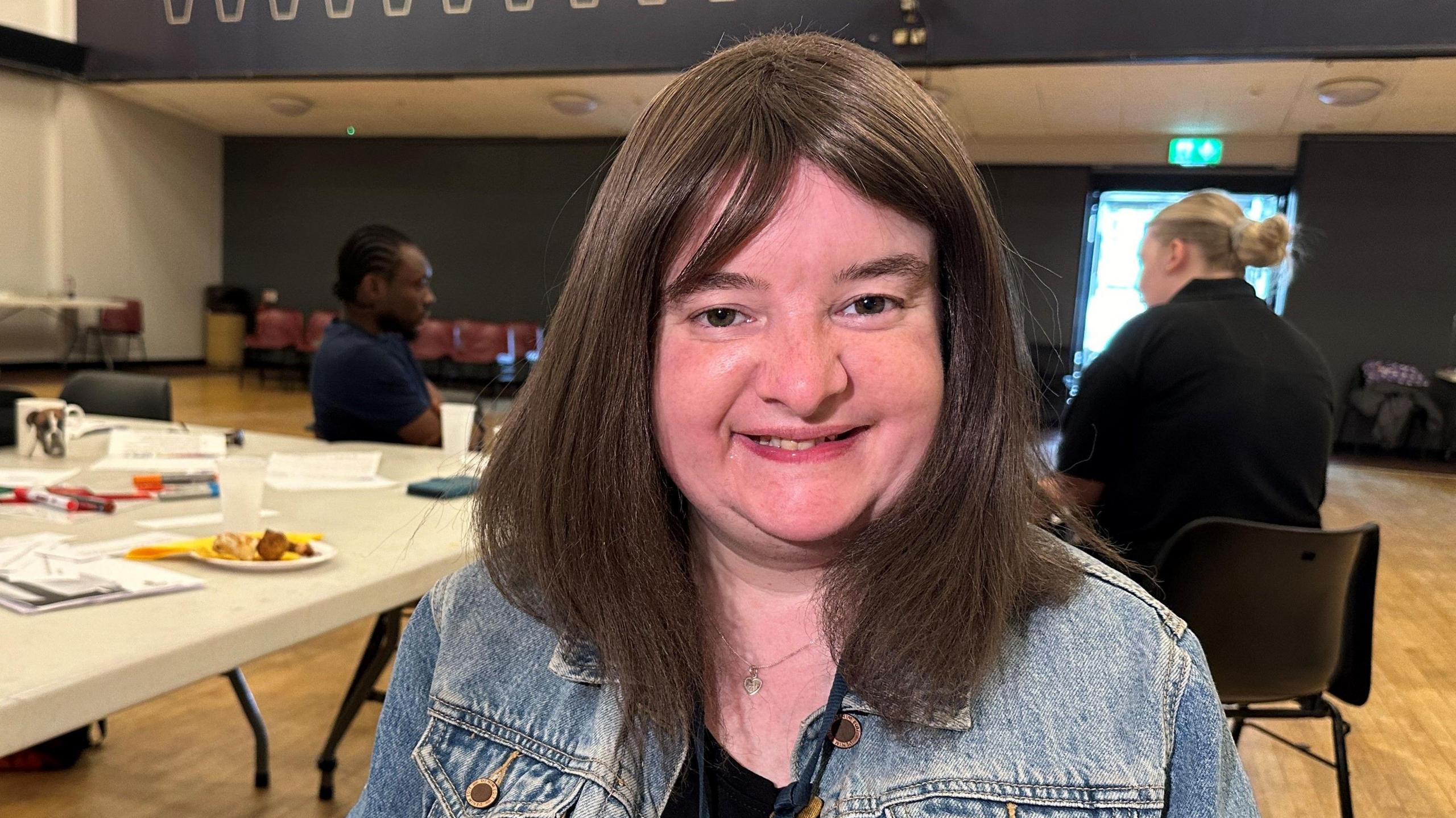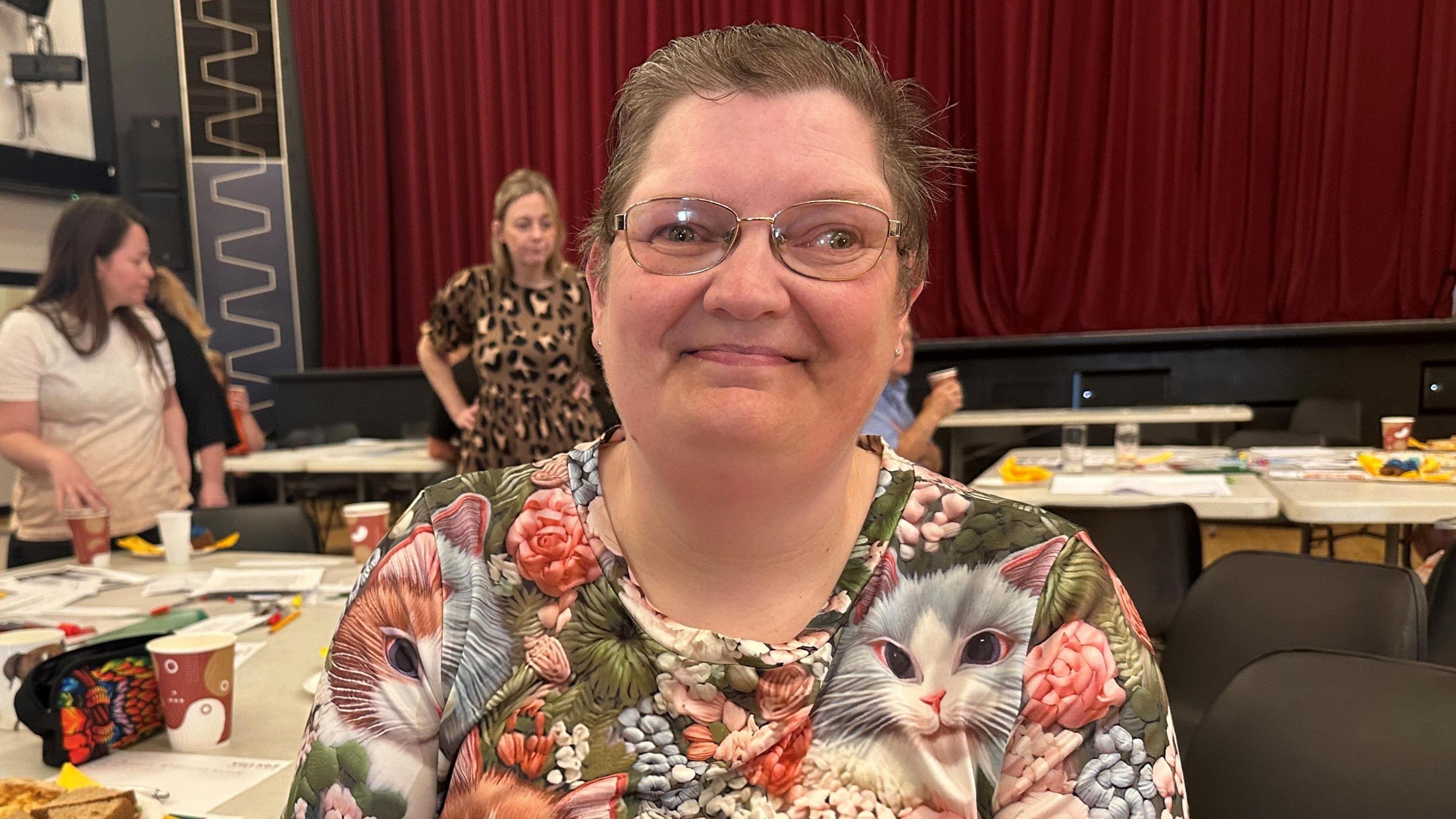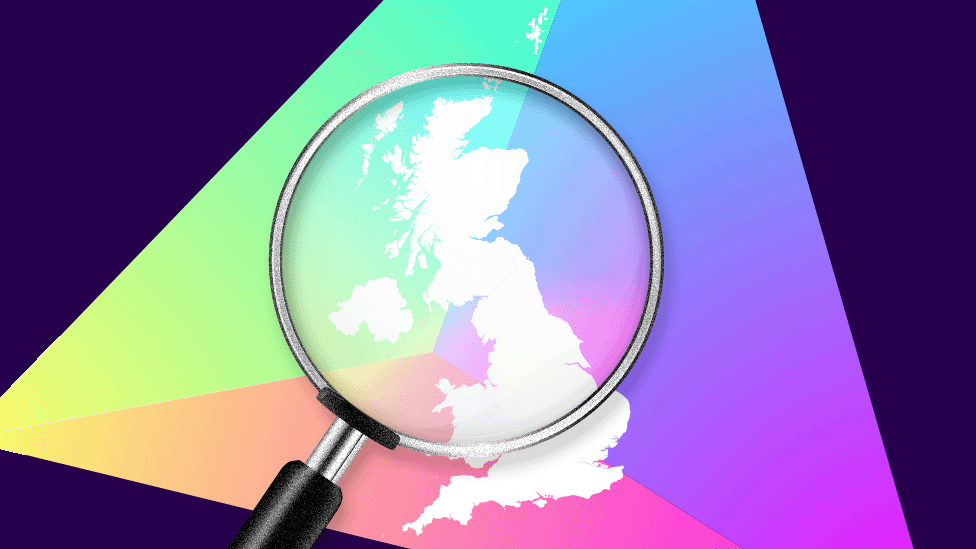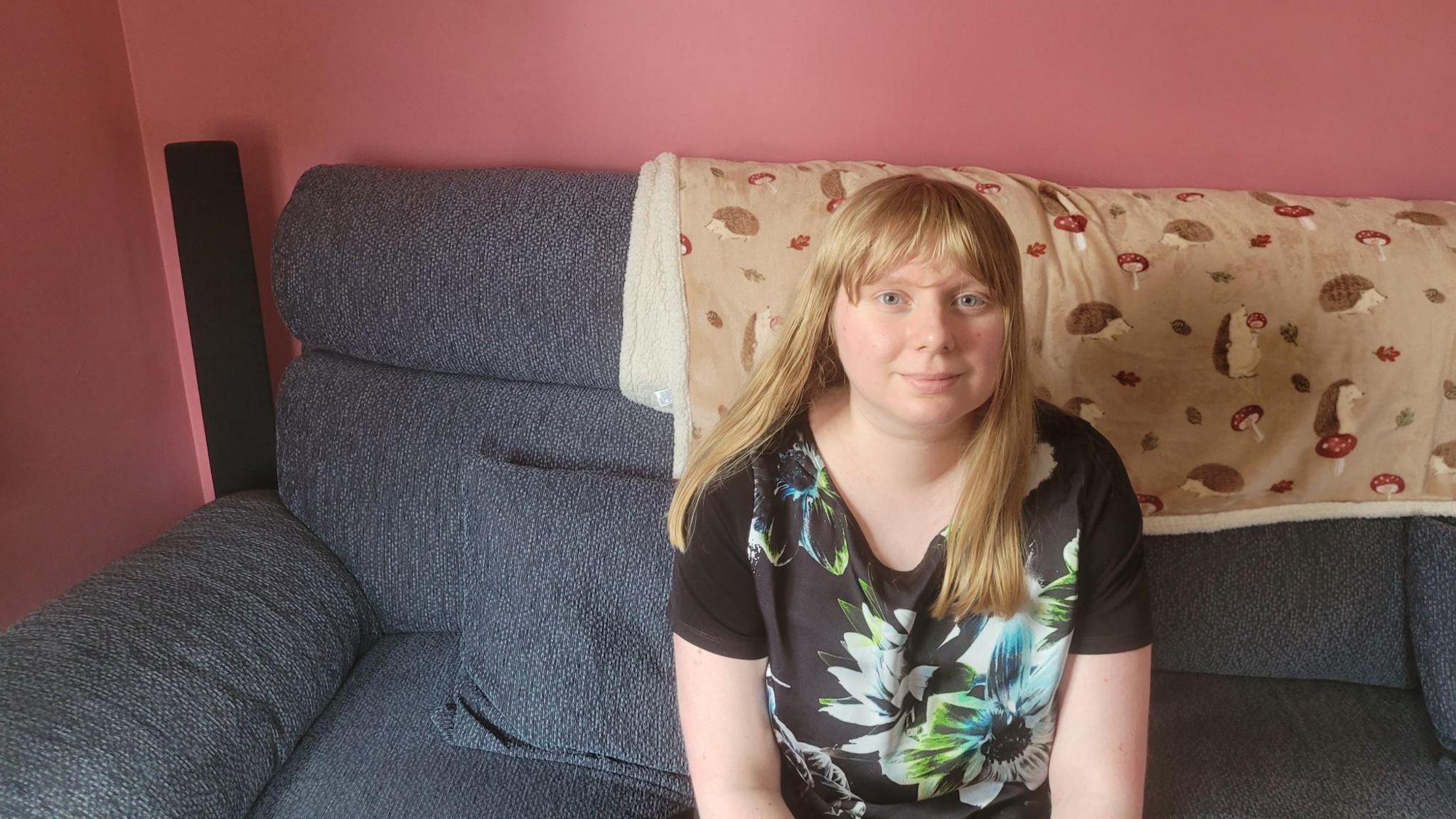Homes and bills among disabled families' priorities

Joanne Valence said she hoped to see cuts in the cost of living in the future
- Published
People with disabilities or who are neurodivergent and their families said they want more support from politicians on finding homes, paying bills and finding work.
They quizzed candidates in a hustings event at Dudley Civic Hall which was focused specifically on their issues.
Joanne Valence, who has autism and learning difficulties, told the BBC she wanted to move into her own home to live independently.
But she said the lack of properties and the cost of household bills were both barriers.
"The cost of living makes everything very difficult at the moment. The cost of everything is going up, the price of food is going up. Bills are a nightmare," Ms Valence added.
Relatives of people with disabilities shared their experiences of the demands of caring for their loved ones.
Amanda Waterfield cares for her brother who is in his 60s and has disabilities.
"Prior to the pandemic there was a service, for example transport," she said.
"Now the day centre has closed down and there's not much support from social workers. I hope that more money is put in for social services."

Diane Baker said she wanted to see better employment support from the next government
Elaine Deeming runs a support group for parents of children with disabilities.
Her teenage son had experienced the challenges of moving from the support on offer for children to, as he got older, the services available for adults, she said.
"People with learning disabilities feel marginalised and don't feel there's enough support to access community and services in the same way that everybody else can," she said.
"It's important that politicians make learning disabilities a priority."
Diane Baker has learning disabilities and said she would like to find employment but had so far been unable to secure a job.
"If I go for an interview looking for jobs, they push my CV to the bottom because I have a learning disability. It's not right," she said.
Ms Baker said she also questioned whether whoever forms the next government would keep the promises made in their manifestos.
She added: "Are they going to do what they say they're going to do?"
A full list of candidates nominated in seats across the Black Country is available here.
What do the political parties say about support for people with disabilities or who are neurodivergent?
The Conservatives said: "Our ambition is to make this country the most accessible place in the world for people with disabilities to live, work and thrive.
"We are delivering on our Disability Action Plan to transform the everyday lives of people with disabilities."
Discussing health, it added: "We will continue to modernise autism and learning disability services."
Labour said it would help disabled people into work by improving support and their access "to reasonable adjustments".
"We will also tackle the Access to Work backlog and make sure people can try out a job without fear of an immediate benefit reassessment if it does not work out."
Its only reference to autism was when discussing plans for mental health. It also mentioned introducing full rights to equal pay for disabled people.
The Liberal Democrats said it would provide "additional support and advice to employers on neurodiversity in the workplace" and would develop "a cross-government strategy to tackle all aspects of discrimination faced by neurodiverse children and adults".
It said it would tackle the disability employment gap "by implementing a targeted strategy to support disabled people into work, with specialist disability employment support".
This would involve "requiring large employers to monitor and publish data" on disability employment levels, pay gaps and progression, and publishing five-year aspirational diversity targets.
The Greens said they plan to spend an additional £20bn to tackle the crisis in adult social care.
Their only reference to neurodivergency was in its support for children.
However, it said: "Green MPs will push for pay-gap protections to be extended to all protected characteristics including ethnicity, disability and sexual orientation."
Reform UK does not mention neurodiversity or autism and the party's main idea for adult social care in England is to set up a royal commission within the first 100 days of a new government. This would draw up a national plan for a sustainable system to support people who are older and disabled in the community.
With regards to work, it says: "Reforms to benefit support and training will help people back into work. Particular focus on 16-34 year olds. Employment is critical to improving mental health."

Follow BBC Wolverhampton & Black Country on Facebook, external, X, external and Instagram, external. Send your story ideas to: newsonline.westmidlands@bbc.co.uk, external
More on the general election
- Published3 July 2024

- Published26 June 2024

- Published26 June 2024
